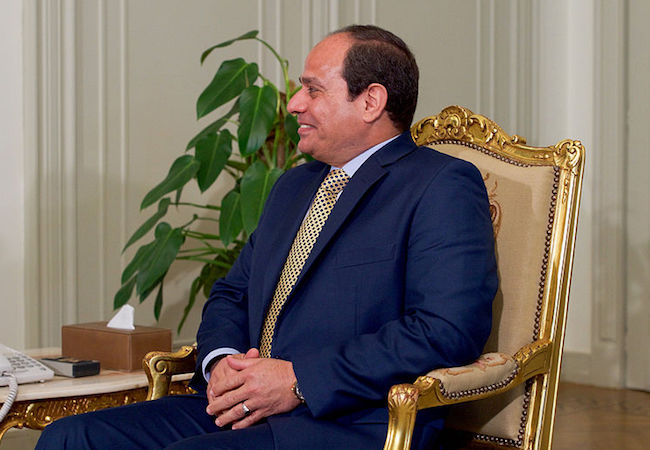
By Raphael Benaroya
In his recent address to Congress, President Donald Trump said his administration is taking steps to protect the United States from Islamic terrorism. The Pentagon is expected to shortly present a comprehensive plan to defeat the Islamic State in the next year. The President has promised to work with allies, including in the Muslim world, to extinguish this “vile enemy from our planet.”
One long-time U.S. ally, Egypt, has been ready to step forward and work closer with the United States to this end. It is a leader in the Arab world and it represents one of America’s oldest and deepest alliances in the region.
Egypt has gone through a difficult political and economic transition in recent years. It has endured political instability, economic hardship and has been the target of terror attacks from ISIS-affiliated groups operating in the northern Sinai Peninsula and by the Muslim Brotherhood. But over a few years it has taken steps to stabilize the political environment through election of a new parliament and enactment of a new constitution. The government of President Sisi has also embarked on a series of far-reaching economic reforms aimed at generating growth and investment in Egypt’s economy.
As the leader of moderate Arab states, Egypt is an ideal partner for the United States to counter Islamic terror. There is already a deep level of collaboration between the military services and intelligence professionals of both countries. This opens the door for enhanced political and diplomatic engagements with the Trump administration.
Egypt and Israel are peaceful neighbors and there is a meaningful cooperation between the two countries on the security front. The Camp David Accords in 1979 remains the most significant diplomatic achievement in the region. Egypt, then Jordan, are the only Arab states with the courage to invest in a peaceful relationship with America’s most valuable ally in the region.
There is also a thirty-year history of military-to-military relations. The United States has helped Egypt train and equip a large, modern and powerful military that contributes to both internal and regional stability. Egypt also facilitates the movement of U.S. military assets across the region through preferential passage of the Suez Canal and overflights of Egypt’s territory.
Both countries share a concern about the spread of the Islamic State and other non-state actors. As do other moderate Arab states, Egypt worries about the rise of Iran and its support of terrorism through foreign proxies, and the effect of dysfunctional states such as Syria, Yemen, Libya and Iraq. This is the foundation for a mutually-beneficial partnership.
But Egypt offers more. As home to the Arab world’s largest population, it can help build public support among other moderate populations in the region. It can continue to advocate for religious tolerance and women’s empowerment – two important areas where it is already leading the Arab world by example.
The previous U.S. administration did not appreciate the value of Egypt’s role as an ally in the Arab world. It ended a cash-flow financing scheme that had been an important part of the special Cairo-Washington relationship. For its part, Egypt was preoccupied with restoring domestic security, relieving an economic crisis and reconstructing public institutions.
But now is the time for the Trump administration, Congress and our foreign policy and security establishment to think anew about the future of U.S.-Egypt relations. This starts with recognizing Egypt’s centrality in the Arab world and linking a robust partnership to Egypt with American interests in advancing stability and security. Regular dialogues between senior officials in both countries can build trust and confidence. President Trump should extend an early invitation to President Sisi to meet in Washington. These can lead to an alignment of shared interests and an agreement on what each partner can do.
Egypt’s progress will not always be smooth and there will inevitably be setbacks as it deals with the complex challenge of providing stability, security and economic and social development. But it is a country well-positioned to play a more active diplomatic role in the Middle East and North Africa. In a recent visit of the Business Executives for National Security with President Sisi, he expressed his deep desire for a strong and lasting strategic cooperation with the United States.
In a region where the United States needs willing, moderate allies to achieve its strategic interests, its old partner in the region remains relevant to today’s security challenges.
Raphael Benaroya is an American businessman. He serves as Vice Chairman and a member of the executive committee of Business Executives for National Security (BENS), a Washington, D.C.-based organization.




